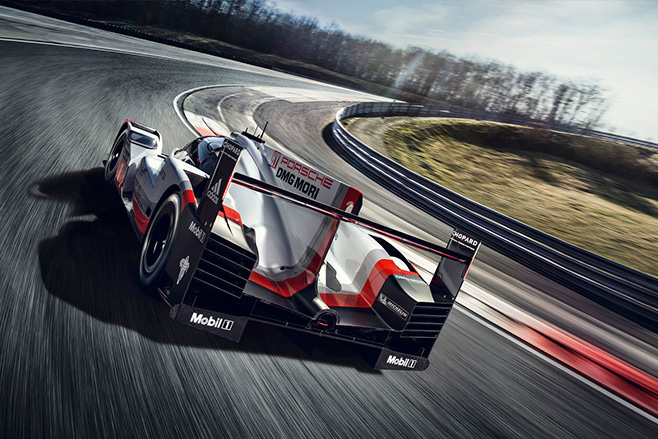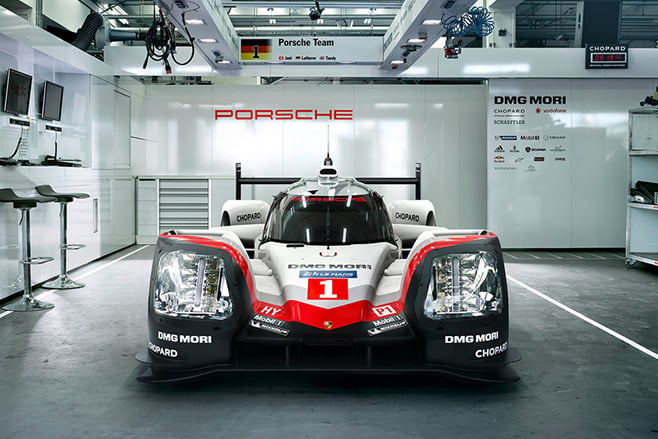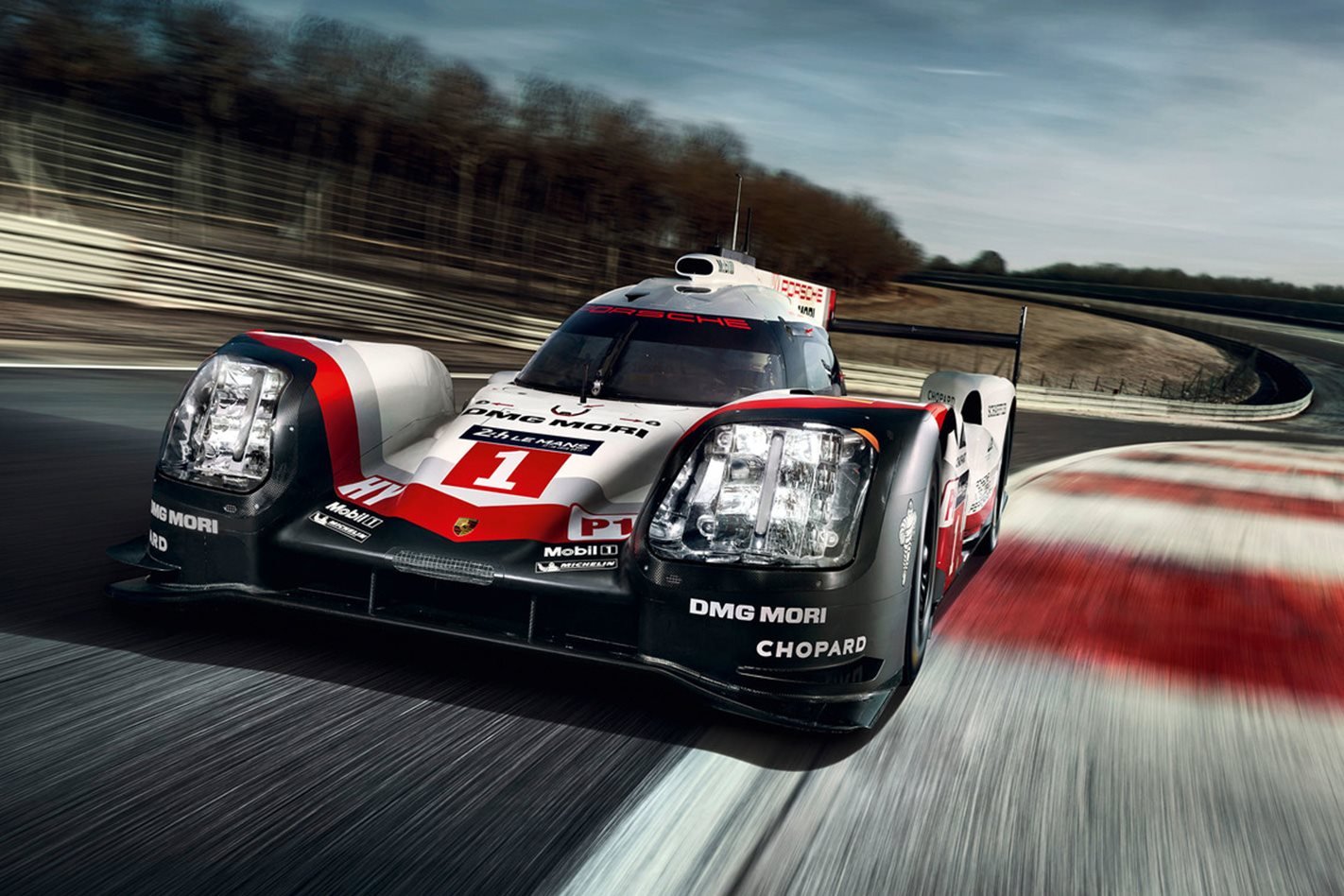Porsche says its 919 Hybrid endurance racer has been redeveloped to compensate for new regulations in the 2017 World Endurance Championship.
The essence of the 919’s drivetrain remains the same, with a 2.0-litre turbocharged V4 supplying 368kW and an electric motor capable of bringing another 294kW to the party.
The result is a healthy 662kW pulling along a lightweight chassis and a monocoque made of carbon fibre and honeycomb aluminium, totalling a dry weight of 875kg.

Mark Webber’s Porsche 919 Hybrid in London
Team principal and acting technical director Andreas Seidl says most of the car has been updated in some way. “For the 2017 season, 60 to 70 per cent of the vehicle is newly developed. The basic concept of the 919 Hybrid still offers scope to optimise the finer details and further boost efficiency.”
The updated Porsche 919 Hybrid will reach 100km/h in a spritely 2.2 seconds, and 200km/h in 4.8, which leaves more than 86,395 seconds of the 24-hour race at Le Mans to go.

New regulations have reduced the amount of downforce allowed in an effort to lower cornering speeds. Porsche says it will counter account for this by using one of two new aerodynamic setups.
Nine things we learned at Le Mans 2016
One setup is specially designed for high speeds and minimal air resistance at Le Mans, while the other focuses on higher downforce to compensate for extra drag, enabling the car to more easily navigate technical tracks.
“As a result of the aerodynamic losses we will incur due to the new regulations, we are expecting to see a three to four-second increase in lap times at Le Mans,” explains Seidl.

“We will have to wait and see how well the various enhancements we have made will compensate for these losses,” says Seidl.
LMP vice president for Porsche Fritz Enzinger says the 24-hour race at Le Mans will be unpredictable as usual, and adds he expects Toyota to put up a robust challenge for Porsche.
Toyota TS050 LMP1 racer revealed
“Toyota is set to be a very strong contender in the top-tier LMP1 category for the 2017 season,” he says. “We will face up to them with a meticulously enhanced Porsche 919 Hybrid and a team of six first-class drivers.”






